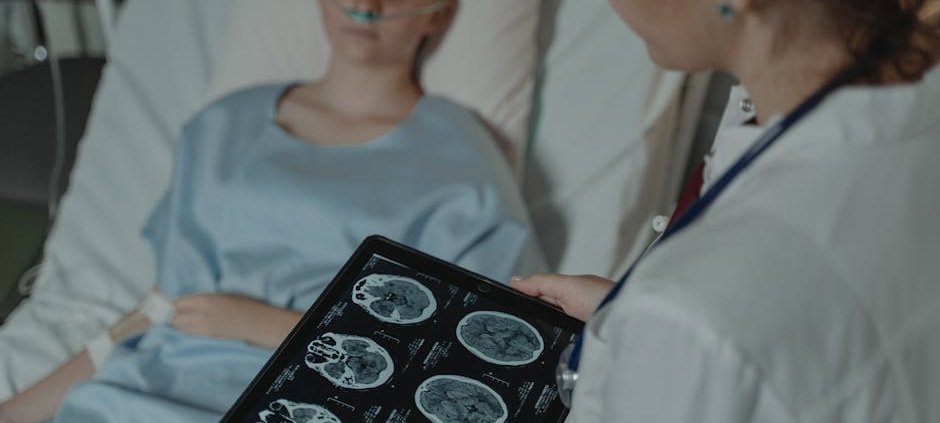Ketamine for Generalized Anxiety Disorder: 5 Powerful Benefits
Changing Anxiety Treatment with Ketamine
Ketamine for generalized anxiety disorder is gaining attention as a approach for those who haven’t found success with traditional therapies. If you’re seeking rapid relief from persistent anxiety, ketamine may offer the fast-acting solution you’ve been looking for. Here’s a quick overview of why ketamine is making waves in the mental health community:
- Fast Action: Ketamine offers rapid anxiety relief, often within hours.
- Treatment-Resistant Cases: It can effectively reduce symptoms where other treatments fail.
- Potential for Long-Term Benefits: Supports mental health improvements by enhancing brain function.
Traditional treatments for anxiety often come with delays and may not work for everyone. Ketamine, however, stands out by offering prompt symptom relief, particularly for those who have tried and tested other medications without success. Clinical studies show that when used correctly, it offers not just fleeting relief but also potential longer-term benefits by improving overall brain health.
As mental health challenges rise, ketamine is emerging as a guide of hope. It makes a profound difference in mental well-being and offers an alternative path to peace for individuals struggling with anxiety disorders.

Understanding Generalized Anxiety Disorder (GAD)
Generalized Anxiety Disorder, or GAD, is more than just feeling anxious occasionally. It’s a condition marked by persistent and excessive worry about various aspects of life, such as health, work, or social interactions. This worrying occurs on most days for at least six months, and it can be debilitating.
Symptoms
People with GAD often experience a range of symptoms that affect their daily lives. These can include:
- Restlessness or feeling on edge: A constant feeling of unease or nervousness.
- Fatigue: Feeling tired easily, even without much physical activity.
- Difficulty concentrating: Often described as the mind “going blank.”
- Irritability: Becoming easily frustrated or annoyed.
- Muscle tension: Stiffness or pain in muscles, often due to constant worry.
- Sleep disturbances: Problems falling or staying asleep, or experiencing unsatisfying sleep.

Prevalence
GAD is quite common, affecting a significant portion of the population. Studies show that the lifetime prevalence of GAD is about 7.7% in women and just under 5% in men. These numbers highlight the importance of effective treatment options, like ketamine for generalized anxiety disorder, which can provide relief for those who haven’t responded to traditional therapies.
Causes
The exact causes of GAD aren’t fully understood, but several factors may contribute:
- Genetics: GAD can run in families, suggesting a hereditary component.
- Brain Chemistry: Imbalances in neurotransmitters like glutamate can play a role.
- Environmental Stress: Life events such as trauma or chronic illness can trigger GAD.
- Medical Conditions: Conditions like hyperthyroidism can contribute to anxiety.
Understanding these causes is crucial for developing effective treatments. For many, traditional medications may not be enough, which is where innovative treatments like ketamine come into play.
Next, we’ll explore how ketamine works in the brain to alleviate symptoms of GAD and why it’s considered a promising treatment for anxiety disorders.
Ketamine for Generalized Anxiety Disorder
Ketamine is gaining attention for its rapid effects in treating Generalized Anxiety Disorder (GAD), especially for those with treatment-resistant anxiety. This means it can help people who haven’t found relief with traditional medications like SSRIs or therapy.
Rapid Effects
One of the most remarkable features of ketamine is how quickly it works. Unlike standard anxiety medications that can take weeks to kick in, ketamine often provides relief within hours. This quick action is a game-changer for individuals in acute distress or those dealing with severe anxiety symptoms. Patients have reported feeling a significant reduction in anxiety shortly after treatment, offering them a much-needed break from constant worry.
Treatment-Resistant Anxiety
For the 30-50% of people with GAD who find little to no relief from traditional treatments, ketamine for generalized anxiety disorder offers new hope. It’s particularly effective for treatment-resistant cases, where other medications have failed. The unique mechanism of ketamine allows it to work differently from conventional antidepressants, offering an alternative path to anxiety relief.
NMDA Receptors and How Ketamine Works
Ketamine’s effects are largely due to its action on NMDA receptors in the brain. These receptors are involved in the release of glutamate, a neurotransmitter that plays a key role in mood regulation and cognitive function.
- Glutamate Regulation: Ketamine helps balance glutamate levels in the brain, which can be out of sync in people with GAD.
- Synaptic Plasticity: By influencing NMDA receptors, ketamine improves synaptic plasticity, which is the brain’s ability to adapt and reorganize itself. This can lead to improved mood and reduced anxiety.
The combination of these effects makes ketamine a powerful tool for managing GAD, providing both immediate and longer-term relief from anxiety symptoms.
Next, we’ll dig into the specific ways ketamine impacts brain function to help alleviate anxiety symptoms and explore its potential side effects.
How Ketamine Works
Ketamine’s effectiveness in treating Generalized Anxiety Disorder (GAD) is closely tied to its impact on brain chemistry, particularly through its interaction with glutamate and synaptic plasticity.
Glutamate and Brain Chemistry
At the heart of ketamine’s action is its influence on glutamate, a key neurotransmitter in the brain. Glutamate is crucial for communication between neurons and plays a significant role in mood regulation and cognitive function. In individuals with anxiety, glutamate levels can become imbalanced, contributing to symptoms.
Ketamine works by blocking NMDA receptors, which are part of the glutamate system. This blockade leads to an increase in glutamate levels, which then activates AMPA receptors. This activation is essential for enhancing synaptic connections, effectively “resetting” the brain’s pathways. This process is particularly beneficial for those with treatment-resistant anxiety, as it can disrupt old, harmful patterns contributing to anxiety.
Synaptic Plasticity: Building New Pathways
One of the most exciting effects of ketamine is its ability to promote synaptic plasticity. This means it helps the brain create and strengthen new neural connections. Synaptic plasticity is the brain’s way of adapting and reorganizing itself, which can lead to improved mood and reduced anxiety.
By enhancing synaptic plasticity, ketamine provides both immediate and longer-term anxiety relief. This is why individuals often experience rapid symptom reduction after treatment, with effects that can last beyond the initial dose.
Impact on Brain Regions
Ketamine’s influence extends to key brain regions involved in anxiety regulation:
- Prefrontal Cortex: This area is responsible for decision-making and moderating social behavior. Ketamine helps restore normal function by increasing synaptic connections.
- Hippocampus: Involved in memory and learning, the hippocampus benefits from ketamine’s ability to increase dendritic density, aiding in mood stabilization.
- Amygdala: Known for processing emotions, the amygdala’s hyperactivity is often reduced with ketamine treatment, leading to decreased fear and anxiety responses.
These combined effects make ketamine a powerful tool for managing GAD, offering both immediate relief and lasting improvements in anxiety symptoms.
Next, we’ll explore the benefits of ketamine treatment, focusing on its fast-acting nature and impact on mood and cognitive function.
Benefits of Ketamine Treatment
Ketamine treatment for Generalized Anxiety Disorder (GAD) offers several compelling benefits that set it apart from traditional anxiety treatments.
Fast-Acting Relief
One of the most remarkable benefits of ketamine is its rapid action. Unlike conventional medications, which may take weeks to show results, ketamine often begins to relieve anxiety symptoms within hours. This quick onset is crucial for individuals in acute distress, providing a much-needed break from overwhelming anxiety.
Mood Improvement
Ketamine’s impact on mood is another key advantage. Many patients report feeling a significant mood lift shortly after treatment. This mood improvement is not just a temporary fix; it helps create a more stable emotional state, allowing individuals to engage more effectively in daily activities and therapy.
Neurocognitive Improvements
Beyond mood improvement, ketamine also contributes to neurocognitive improvements. Research indicates that ketamine can lead to faster processing speeds, improved visual learning, and better memory function. These cognitive benefits are particularly valuable for those whose anxiety has impaired their ability to think clearly or remember information.
Comprehensive Benefits
- Rapid Symptom Reduction: Ketamine’s ability to quickly alleviate anxiety symptoms makes it a game-changer for those with severe anxiety.
- Sustained Effects: While the immediate effects are profound, some individuals experience lasting relief that extends beyond the initial treatment.
- Cognitive Boost: Improved cognitive function can help individuals manage anxiety more effectively by improving their ability to process and respond to stressors.
These benefits make ketamine a promising option for those with treatment-resistant anxiety, offering both immediate relief and longer-term improvements in mood and cognitive function.
Next, we’ll discuss the potential side effects of ketamine treatment, ensuring you have a comprehensive understanding of what to expect.
Potential Side Effects of Ketamine
While ketamine offers promising benefits for Generalized Anxiety Disorder (GAD), be aware of potential side effects. Understanding these can help you make informed decisions about your treatment options.
Hallucinations
One of the most notable side effects of ketamine is hallucinations. These can occur during or shortly after treatment and may involve seeing, hearing, or feeling things that aren’t there. Hallucinations are typically short-lived, peaking around 30 minutes post-infusion and usually resolving within an hour. Having a trusted person present during treatment can help manage these experiences safely.
Memory Loss
Some individuals may experience temporary memory loss after ketamine treatment. This effect is generally mild and short-term, with memory function returning to normal as the drug’s effects wear off. It’s important to report any persistent memory issues to your healthcare provider to ensure appropriate management.
Cognitive Difficulties
Ketamine can also lead to cognitive difficulties, such as feeling confused or disoriented. These challenges are usually transient, resolving as the drug leaves the system. However, if these cognitive effects persist, it is crucial to consult with a medical professional for further evaluation.
Managing Side Effects
- Monitor Symptoms: Keep track of any side effects you experience and communicate them to your healthcare provider.
- Safe Environment: Ensure a safe and comfortable setting for your treatment sessions to minimize anxiety and confusion.
- Support System: Having a friend or family member present can provide emotional support and help manage any side effects.
Despite these potential side effects, many individuals find that the benefits of ketamine treatment for anxiety outweigh the risks. Ongoing research continues to refine dosing and administration methods to minimize side effects while maximizing therapeutic benefits.
Next, we’ll address frequently asked questions about ketamine for anxiety, including how quickly it works and typical dosing guidelines.
Frequently Asked Questions about Ketamine for Anxiety
How fast does ketamine work for anxiety?
One of the most exciting aspects of ketamine for generalized anxiety disorder is its rapid onset. Unlike traditional anxiety medications, which can take weeks to become effective, ketamine starts working within hours. Many people report a noticeable reduction in anxiety symptoms shortly after administration. This quick action can be a game-changer for those in acute distress or experiencing severe anxiety.
What is the typical dose of ketamine for anxiety?
Ketamine is typically administered in a clinical setting, and the dose can vary depending on individual needs and treatment plans. The most common administration route is through intravenous (IV) infusion, but it can also be given via intramuscular injection, nasal spray, or oral tablets. The dosing often starts low and may be adjusted based on the patient’s response and side effects, ensuring a balance between effectiveness and safety.
Are there any long-term effects of ketamine use?
While ketamine provides rapid relief, it’s important to consider the potential long-term effects. Most side effects, such as hallucinations and cognitive difficulties, are temporary and resolve as the drug leaves the system. However, ongoing research is crucial to fully understand any long-term impacts of repeated ketamine use. Current studies focus on optimizing dosing and administration to ensure safety and efficacy over extended periods.
In summary, ketamine’s ability to quickly alleviate anxiety symptoms, even in treatment-resistant cases, offers new hope for those struggling with generalized anxiety disorder. As research progresses, we continue to learn more about its long-term effects and refine treatment protocols to maximize benefits while minimizing risks.
Conclusion
At Buy Ketamine Crystals Online, we believe in the transformative power of ketamine as a promising treatment for generalized anxiety disorder. The rapid action of ketamine offers a guide of hope for individuals battling persistent anxiety symptoms, especially when traditional treatments fall short.
Ketamine’s ability to provide swift relief can significantly improve mental health, offering a much-needed respite for those in distress. While ongoing research continues to refine our understanding of its long-term effects, the current evidence supports its effectiveness in reducing anxiety quickly and safely.
We are committed to providing access to ketamine products, including crystals, powder, pills, and vials, ensuring discreet delivery across the United Kingdom, USA, Germany, and Austria. Our unique approach allows individuals to explore this treatment option without the need for a prescription, making it more accessible to those in need.
Explore the potential of ketamine for anxiety relief and take the first step towards mental health improvement. Visit our ketamine for sale page to learn more about how you can benefit from this breakthrough treatment.
Together, let’s move from panic to peace.

































